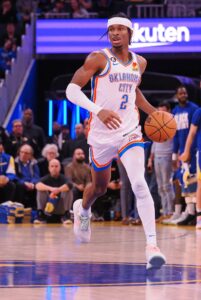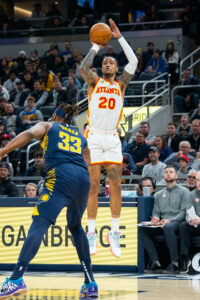There’s usually a lot of excitement surrounding All-Star weekend, but the All-Star Game itself has turned into a joke for many fans, with no one particularly interested in playing any defense and hustling up and down the court being optional.
Since 2014, no losing team has failed to score fewer than 150 points. This year’s contest in Utah took it to new levels of absurdity, as both sides would have scored over 200 points if the “target score” rule wasn’t used in the fourth quarter. Nuggets coach Michael Malone called it the “worst basketball game ever played.”
It wasn’t always that way, In 2005 and 2006, the final scores were 125-115 and 122-120. That would be a typical score now for a regular season game.
The NFL finally gave up on the concept of having a Pro Bowl game this year, opting for a flag football extravaganza. Major League Baseball tried to make its annual All-Star Game more meaningful a few years back by awarding the winning league home field advantage in the World Series.
Is it time for the NBA to make its All-Star more meaningful, or at least make it less like a Harlem Globetrotters-style offensive exhibition?
The league did make a major change in 2018, appointing team captains and scrapping the East vs. West conference showdowns. The teams are now chosen by the captains. This year, the league added a little twist, having the captains choose the squads on game night.
It’s up to interpretation whether that format has been more successful, or simply more confusing for fans to choose a side. It’s safe to say no one really cares which team ends up winning.
Erasing the game altogether would probably not fly. Host cities have a lot invested in the game but it would be nice to find some middle ground between the game being a shameless exhibition and a hard-fought contest.
That brings us to today’s topic: Do you like having captains choose the All-Star teams or would you prefer to revert back to the East vs. West matchup? In what ways would you propose to improve the quality of the All-Star Game and make it more meaningful?
Please take to the comments section to weigh in on this topic. We look forward to your input.
 Gilgeous-Alexander, 24, is in his fifth season. Markkanen, 25, is in his sixth. Brunson, 26, is in his fifth. That’s not to take anything away from any of the players whatsoever, I just thought it was interesting that they are slightly more experienced than many of the past winners over the past couple decades.
Gilgeous-Alexander, 24, is in his fifth season. Markkanen, 25, is in his sixth. Brunson, 26, is in his fifth. That’s not to take anything away from any of the players whatsoever, I just thought it was interesting that they are slightly more experienced than many of the past winners over the past couple decades. In just the past two weeks, the Pelicans, Rockets, Jazz, Heat and Wizards have been mentioned as potential destinations for Collins.
In just the past two weeks, the Pelicans, Rockets, Jazz, Heat and Wizards have been mentioned as potential destinations for Collins.